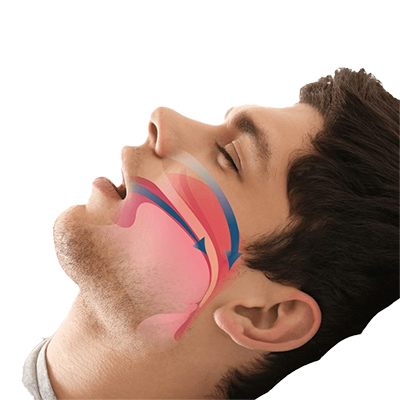OSAS (obstructive sleep apnea)

Obstructive Sleep Apnea Syndrome (OSAS): Understanding and Managing Sleep Disordered Breathing
In this section, we will shed light on a common sleep disorder known as Obstructive Sleep Apnea Syndrome (OSAS). Our goal is to provide you with a comprehensive understanding of OSAS, including its causes, symptoms, diagnosis, and available treatment options.
1. Introduction
- Definition: Obstructive Sleep Apnea Syndrome is a sleep disorder characterized by repetitive partial or complete obstruction of the upper airway during sleep, leading to disrupted breathing and intermittent oxygen deprivation.
- Prevalence: OSAS affects individuals of all ages, but is more commonly observed in middle-aged adults and those who are overweight or obese.
- Impact on overall health: Left untreated, OSAS can have detrimental effects on your overall health and quality of life, ranging from daytime sleepiness and fatigue to an increased risk of cardiovascular disease and other medical conditions.
2. Causes
- Anatomy: Certain anatomical characteristics, such as excess throat tissue or a narrow airway, can contribute to the development of OSAS.
- Obesity: Being overweight or obese increases the risk of OSAS due to the accumulation of fat in the neck area, which can obstruct the airway during sleep.
- Lifestyle factors: Alcohol consumption, sedative use, and smoking can relax the throat muscles, making them more prone to collapse during sleep and resulting in breathing difficulties.
3. Symptoms
- Excessive daytime sleepiness: Feeling excessively tired or falling asleep during the day is a common symptom of OSAS.
- Loud snoring: Chronic loud snoring is often one of the primary complaints of individuals with OSAS.
- Pauses in breathing: Witnessed episodes of breathing cessation during sleep, followed by gasping or choking sounds.
- Poor quality sleep: Individuals with OSAS often experience fragmented sleep or frequent awakenings throughout the night.
- Morning headaches: Waking up with headaches, especially in the morning, may be a sign of oxygen deprivation during sleep.
- Mood changes and cognitive impairment: OSAS can contribute to irritability, depression, and difficulties with concentration and memory.
4. Diagnosis
- Sleep studies: Polysomnography is the gold standard diagnostic test for OSAS. It involves monitoring various parameters during sleep, such as brain activity, breathing patterns, heart rate, oxygen levels, and body movements.
- Home sleep apnea testing: In certain cases, portable sleep monitoring devices may be used to diagnose OSAS in the comfort of your own home, under the supervision of your healthcare provider.
5. Treatment
- Continuous Positive Airway Pressure (CPAP): CPAP therapy is the most common and effective treatment for OSAS. It involves wearing a mask connected to a machine that delivers pressurized air to keep the airway open during sleep.
- Oral appliances: Custom-fitted dental devices can help reposition the jaw and tongue, preventing the airway from collapsing during sleep.
- Lifestyle changes: Losing weight, avoiding alcohol and sedatives, quitting smoking, and practicing good sleep hygiene can significantly improve OSAS symptoms.
- Surgical options: In some cases, surgery may be recommended to correct anatomical abnormalities that contribute to OSAS. Procedures may include uvulopalatopharyngoplasty (UPPP), tonsillectomy, or palatal implants.
6. Importance of Treatment
- Health benefits: Effective management of OSAS can improve overall health, reduce the risk of associated medical conditions, and enhance quality of life.
- Improved sleep quality: Treating OSAS can lead to better sleep patterns, increased energy levels, and improved daytime functioning.
- Enhanced safety: Correcting OSAS reduces the risk of accidents caused by excessive daytime sleepiness, such as at work or while driving.
7. Conclusion
Obstructive Sleep Apnea Syndrome is a serious sleep disorder that requires prompt diagnosis and appropriate treatment. With the expertise of Dr. Seejo George and his dedicated team, you can receive proper evaluation, accurate diagnosis, and individualized treatment plans tailored to your unique needs. Don't let OSAS negatively impact your sleep and overall well-being – contact us today to schedule a consultation and take the first step towards a good night's sleep.






